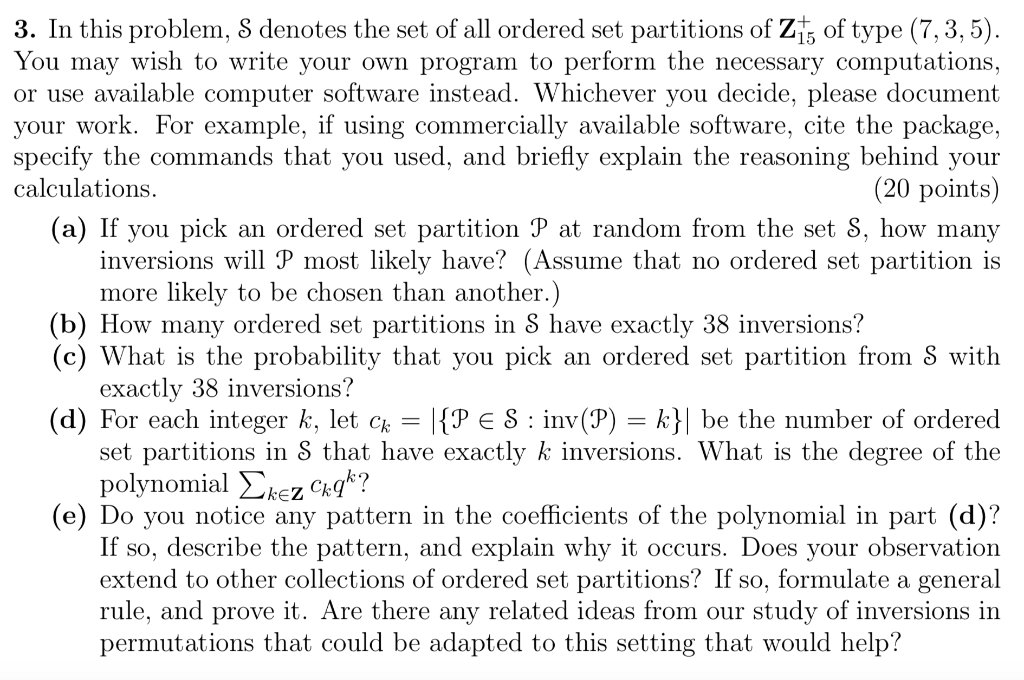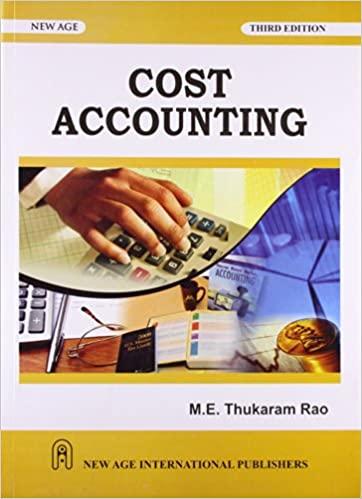
3. In this problem, S denotes the set of all ordered set partitions of Z15 of type (7,3,5). You may wish to write your own program to perform the necessary computations, or use available computer software instead. Whichever you decide, please document your work. For example, if using commercially available software, cite the package, specify the commands that you used, and briefly explain the reasoning behind your calculations. (20 points) (a) If you pick an ordered set partition P at random from the set S, how many inversions will P most likely have? (Assume that no ordered set partition is more likely to be chosen than another.) (b) How many ordered set partitions in S have exactly 38 inversions? (c) What is the probability that you pick an ordered set partition from S with exactly 38 inversions? (d) For each integer k, let ck [{P ES : inv(P) = k}| be the number of ordered set partitions in S that have exactly k inversions. What is the degree of the polynomial Ekez Ckqk? (e) Do you notice any pattern in the coefficients of the polynomial in part (d)? If so, describe the pattern, and explain why it occurs. Does your observation extend to other collections of ordered set partitions? If so, formulate a general rule, and prove it. Are there any related ideas from our study of inversions in permutations that could be adapted to this setting that would help? 3. In this problem, S denotes the set of all ordered set partitions of Z15 of type (7,3,5). You may wish to write your own program to perform the necessary computations, or use available computer software instead. Whichever you decide, please document your work. For example, if using commercially available software, cite the package, specify the commands that you used, and briefly explain the reasoning behind your calculations. (20 points) (a) If you pick an ordered set partition P at random from the set S, how many inversions will P most likely have? (Assume that no ordered set partition is more likely to be chosen than another.) (b) How many ordered set partitions in S have exactly 38 inversions? (c) What is the probability that you pick an ordered set partition from S with exactly 38 inversions? (d) For each integer k, let ck [{P ES : inv(P) = k}| be the number of ordered set partitions in S that have exactly k inversions. What is the degree of the polynomial Ekez Ckqk? (e) Do you notice any pattern in the coefficients of the polynomial in part (d)? If so, describe the pattern, and explain why it occurs. Does your observation extend to other collections of ordered set partitions? If so, formulate a general rule, and prove it. Are there any related ideas from our study of inversions in permutations that could be adapted to this setting that would help







